
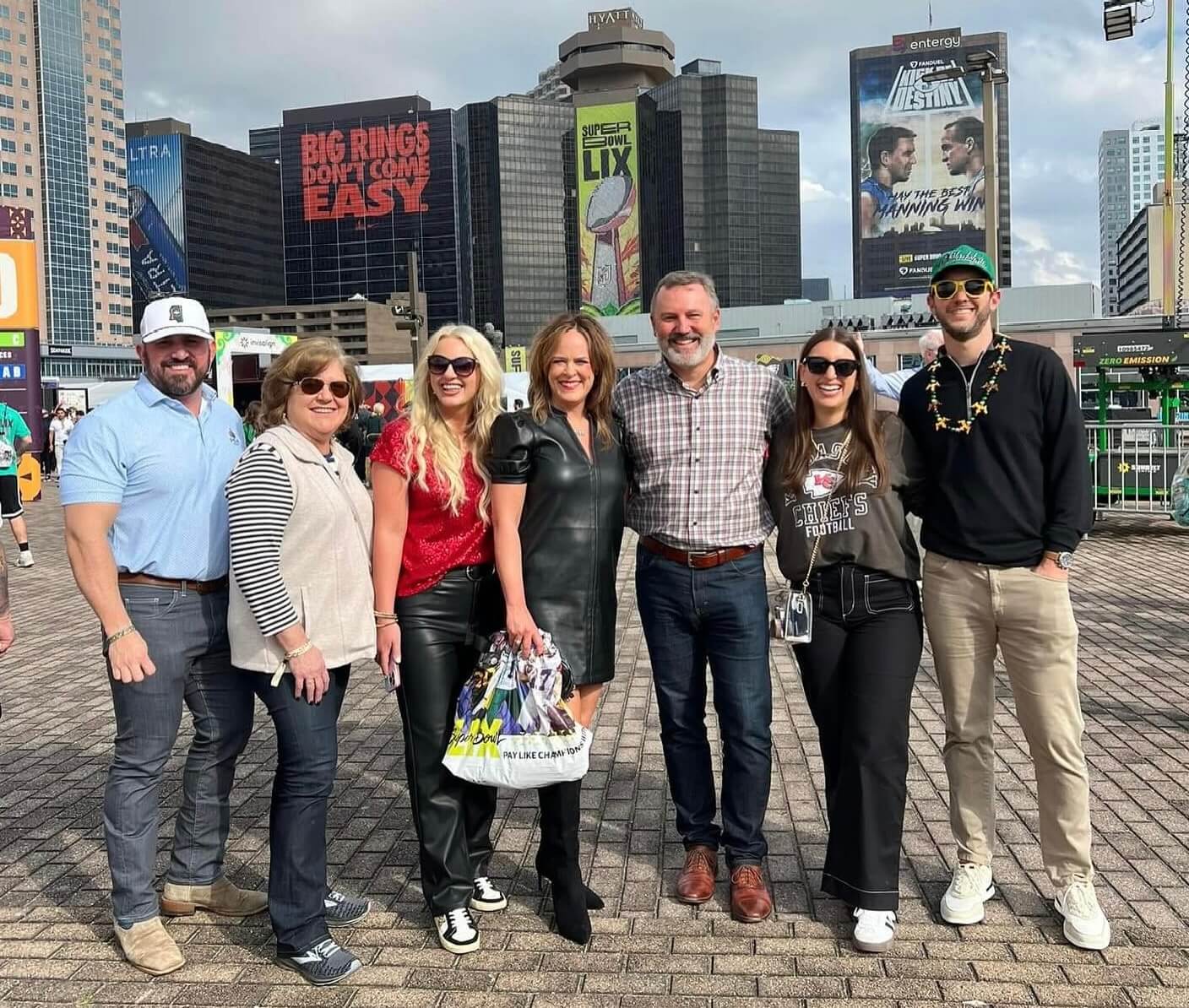
The sports gambling lobby, as it has done in other states, has spent hundreds of thousands of dollars on Mississippi politicians trying to convince them to legalize mobile sports betting.
Part of that effort was an unreported trip to the Super Bowl in New Orleans this year for House Speaker Jason White, his staff and a couple of their spouses. The trip was paid for, at least in part, by DraftKings, one of the nation’s highest-grossing gaming companies that has invested heavily in lobbying for legal online betting.
Thanks to a loophole in Mississippi’s lax lobbying laws, there is no public report to date of the expensive weekend in lobbying reports that are supposed to document spending on behalf of state employees. The cheapest tickets to the Super Bowl retailed for nearly $3,000 each. The group attended the game less than a week after White oversaw the House’s approval of legislation to legalize mobile sports betting in Mississippi.
The Republican speaker, one of the most powerful politicians in the state, has repeatedly said that legalizing mobile sports betting is one of his top priorities. He has continued to push for legal online betting after it has repeatedly died in the Senate. Proponents, such as White, say legalization would be a financial boon to the state. It would also further enrich the gambling companies that facilitate online betting.
The speaker and his staff enjoyed the Super Bowl weekend as mobile sports betting became one of the defining issues of the 2025 legislative session. White and the House leaders took the issue so seriously earlier this year that they blocked other legislation in response to the Senate’s opposition to legal sports betting, according to Senate leaders.
White and his spokesperson, who also attended the Super Bowl, refused to comment or answer questions about the Super Bowl trip.
While in New Orleans, White posed for a photograph in front of the Superdome with his wife, his taxpayer-funded security guard, two House staff members and the husband of one of his staffers. After Mississippi Today discovered the photo, DraftKings and John Morgan Hughes, whose Jackson-based Ten One Strategies firm lobbies for the Sports Betting Alliance, a group representing DraftKings and other gaming organizations, confirmed that the gambling industry paid for the game day tickets.
The Boston-based sports gambling giant has been at the forefront of a years-long lobbying push to legalize online betting in Mississippi and around the country. In a statement, a company spokesperson said DraftKings “follows the required reporting requirements in all jurisdictions, including Mississippi.”
The company declined to answer how much it spent on the group and whether it paid for perks beyond the game tickets in New Orleans — where some of White’s entourage documented extravagant Super Bowl festivities on social media.
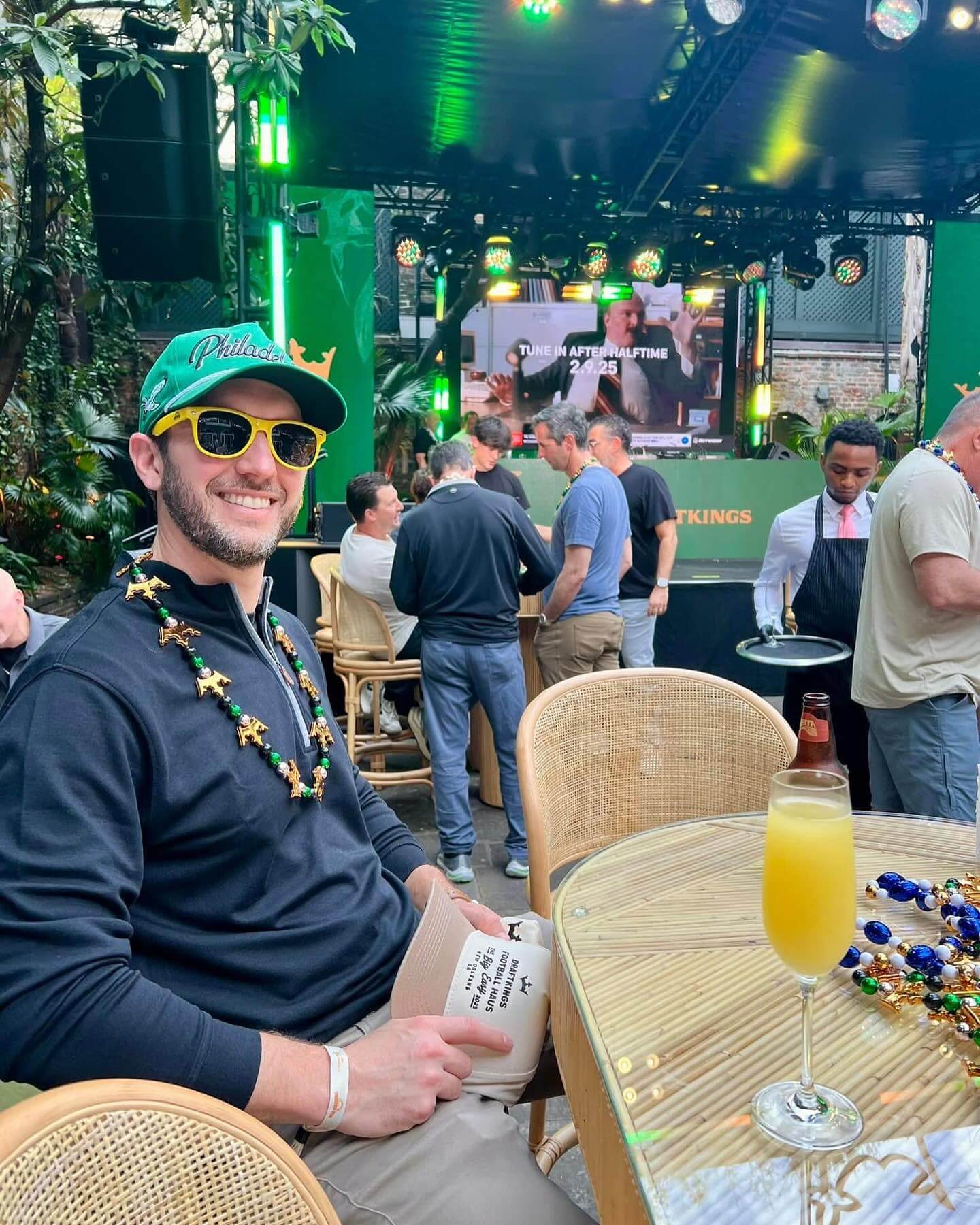
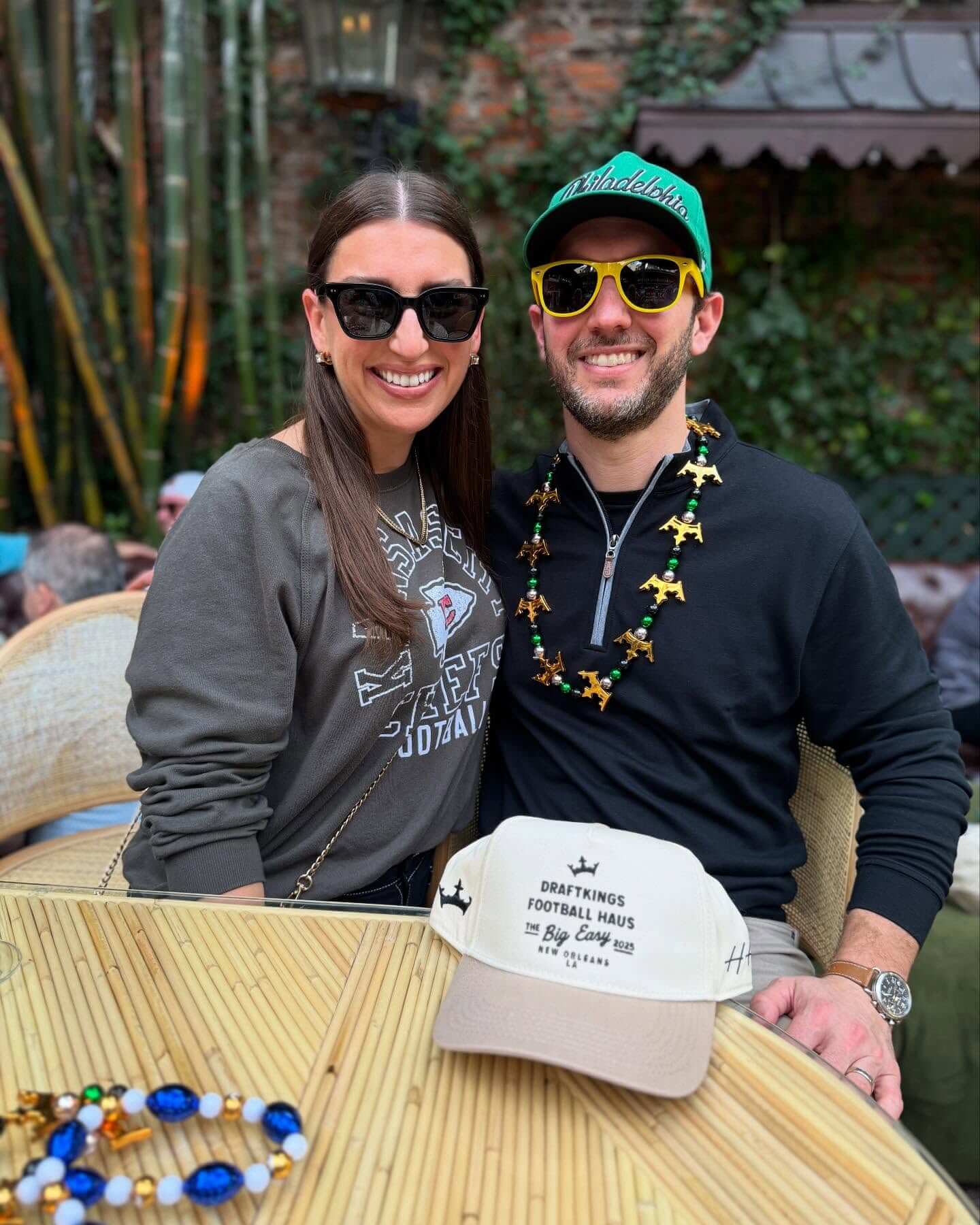
Super Bowl trip was ‘unforgettable experience’
Taylor Spillman, White’s communications director, and her husband, Trey Spillman, who serves as Rankin County’s prosecuting attorney, photographed their weekend in the Big Easy.
They mingled in a luxury box suite at the Superdome, private spaces that cost between $750,000 and $2 million. They took photographs with celebrities such as former Today show host Hoda Kotb and Arkansas Gov. Sarah Huckabee Sanders. And there were pregame drinks at what appeared to be Brennan’s, the famed New Orleans Creole restaurant that served as the weekend stomping ground for guests of DraftKings.
A day after the Super Bowl, Trey Spillman took to social media to thank DraftKings for the experience.
“Unforgettable experience at Super Bowl LIX. Thank you @draftkings for the hospitality! #sports”
But after Mississippi Today asked the Spillmans this week about the trip, he edited the social media post to remove any mention of DraftKings and the company’s “hospitality.”
“Unforgettable experience at Super Bowl LIX. #sports,” the edited post reads.
The Spillmans did not respond to multiple messages seeking comment.


Online gambling money pours in to politicians
Mississippi Today asked DraftKings why the lobbyist registered to represent the company in Mississippi did not disclose the Super Bowl trip for the speaker’s family and staff in his most recent round of expenditure reports.
In response, a spokesperson for the company pointed to state lobbying law that gives the clients of lobbyists, in this case DraftKings, until the end of the year to document gifts to public officials.
Mississippi’s lobbying laws do allow for a distinction between individual lobbyists and clients, leaving open to interpretation what lobbyists and their clients are required to report and when they’re required to report their expenses. The DraftKings spokesperson said that distinction allows it to wait until the end of the year to report the excursion for White’s group. This means DraftKings is claiming the company or the Sports Betting Alliance, not its lobbyist, funded the Super Bowl outing.
Secretary of State Michael Watson’s office regulates lobbyists in Mississippi and enforces the state’s lobbying laws. Watson, who has accepted $1,000 himself from a DraftKings-affiliated PAC, and his office publish an annual lobbying guide.
In the most recent guide, it says a lobbyist’s client is only required to file an annual report the following January — nearly nine months after the regular legislative session ends. That is the provision DraftKings cited when asked why its lobbyist did not document the Super Bowl trip on the most recent report.
Elizabeth Jonson, a spokesperson for Watson’s office, told Mississippi Today in a statement that if a gambling company provided football tickets or other items of value to public officials “for the purpose of lobbying,” then the company is required to disclose those gifts, at some point, in their lobbying reports.

Unlike many other states, Mississippi has no “gift law” banning or limiting how much money lobbyists or others can spend on politicians or government officials.
In total, the Sports Betting Alliance, a group representing DraftKings and other gaming organizations, has spent approximately $454,000 since 2024 on lobbying fees and campaign donations to advocate for mobile sports betting, according to a review of campaign finance and lobbying reports.
Of that money, the Sports Betting Alliance has spent over $254,000 in Mississippi on lobbying expenses, ad campaigns and meals for lawmakers, according to lobbying records filed with the secretary of state.
The SBA and its employees have donated at least another $200,000 to Mississippi politicians, according to campaign finance reports since 2014. SBA routed the money through TenOne PAC, the PAC controlled by Hughes’ lobbying firm. Hughes and the firm have also contributed $32,500 of their own money to the PAC, which could have also been used for sports betting advocacy, although the PAC supports other causes as well.
Arkansas governor faced Super Bowl questions
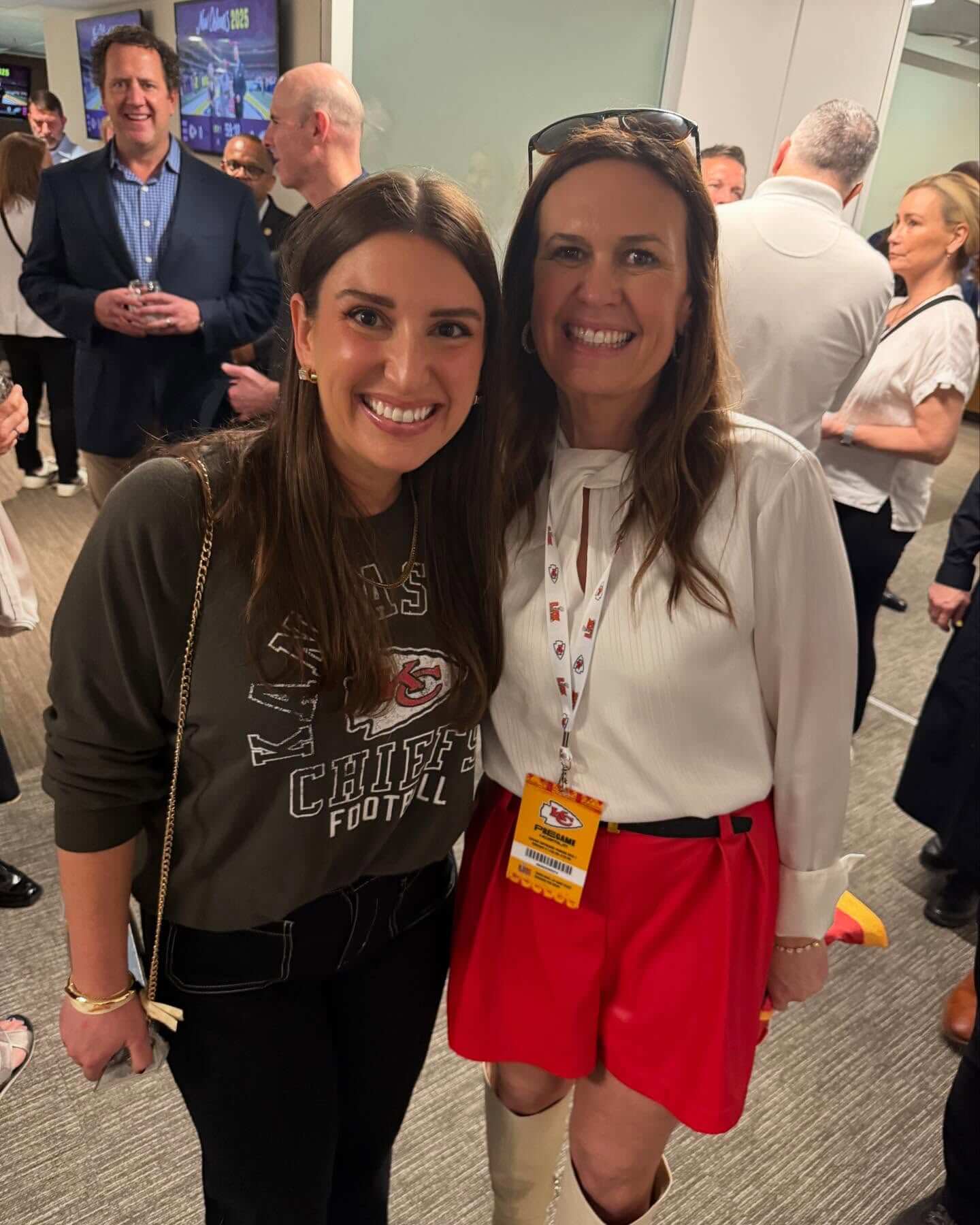
At the Super Bowl, Huckabee Sanders posed with White’s spokesperson, Taylor Spillman. A year prior, the Arkansas governor faced questions about who paid her tab for a trip to the Super Bowl. Sanders later clarified that she and her husband paid for their commercial flight, hotel and tickets to the game. Arkansas, unlike Mississippi, has laws requiring politicians to report gifts from special interests and imposes limits on them.
Sanders’ spokesperson said she paid her own way again to this year’s Super Bowl in New Orleans.
In response to media reports about her trip to the 2024 Super Bowl, Arkansas officials acknowledged that Arkansas State Police provided security on the trip to Huckabee Sanders and her family.
White, the Mississippi speaker, also appears to have had state-funded security on his trip to this year’s Super Bowl.
One of the people photographed in New Orleans with White is the speaker’s designated security guard with the Department of Public Safety’s Executive Protection Division. When asked whether any state resources were used to send the guard to the Super Bowl with the speaker, Bailey Martin, a spokesperson for the state Department of Public Safety, said such state-funded protection would be “expected.”
“The speaker of the Mississippi House of Representatives has been assigned an executive protection detail for many years,” Martin said in a written statement. “It would be expected for agents assigned to the speaker’s detail to attend such events when traveling out of state.”
Two other state employees who work closely with the speaker in the House were photographed inside the Superdome with the Spillmans. One is White’s administrative assistant, and the other is a House committee assistant. There were seven people, including the speaker, photographed in front of the Superdome. Those involved have not disclosed whether others joined the Mississippi group.
The average Super Bowl ticket price this year was around $4,708, according to the online ticket platform TickPick, but prices varied widely.
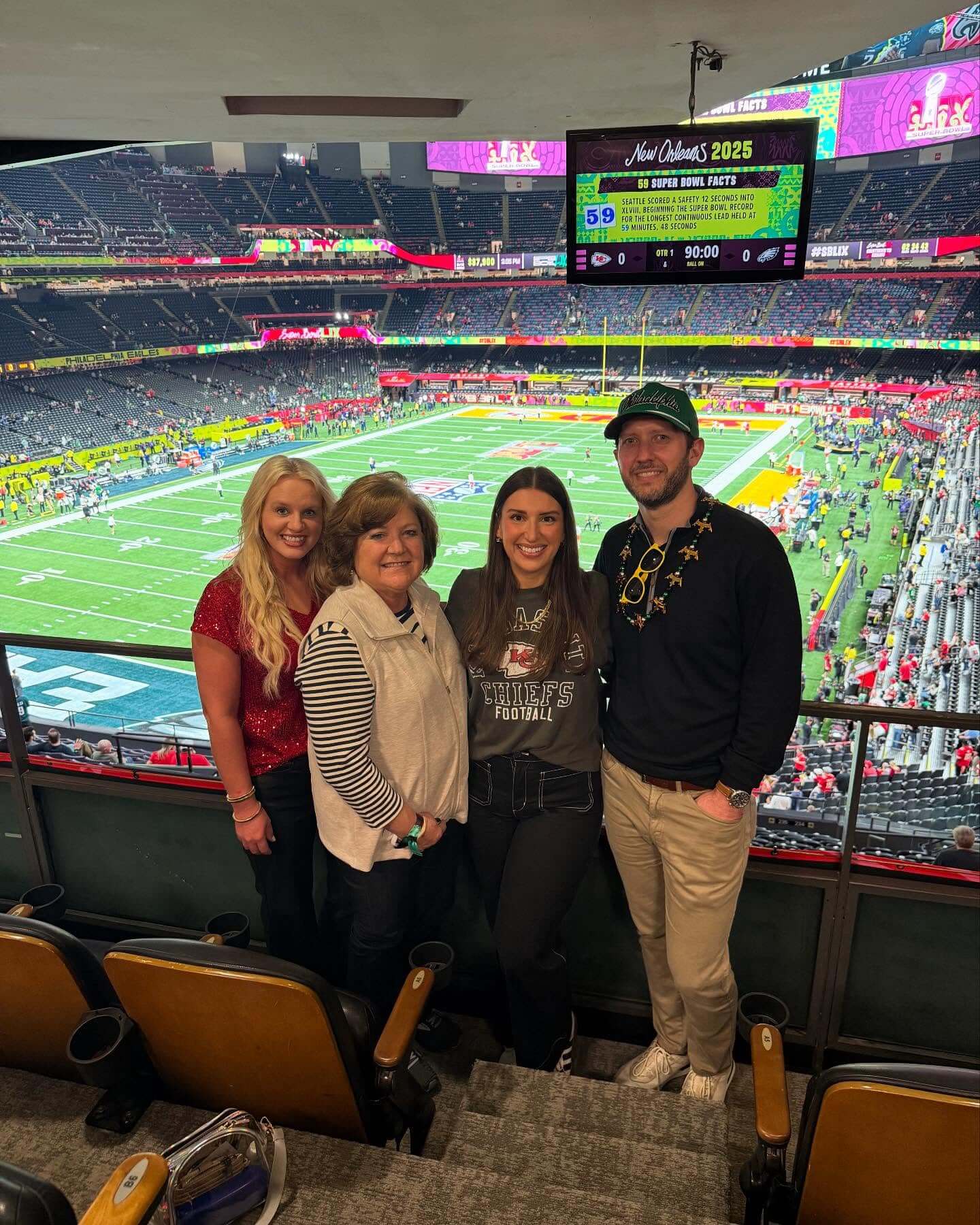
The feverish push to expand the lucrative mobile sports betting industry in states around the country traces back to a change in the federal legal landscape.
Other legislation used as leverage for betting
Commercial sports betting was effectively banned, with a few exceptions, until 2018 when the U.S. Supreme Court overturned a 1992 prohibition. Sports gambling companies such as DraftKings then launched a full-court press lobbying campaign to bring sports betting to tens of millions of mobile phones around the country, an effort reported to be the fastest expansion of legalized gambling in American history.
Around 40 states have some form of legalized sports betting, though about 20 have full online betting with multiple operators, according to Action Network, a sports betting application and news site. Some states only have in-person betting, and some only have a single online operator in the state.
Mississippi has been one of the holdouts, largely due to fears that legalization could harm the bottom line of the state’s casinos and increase the prevalence of gambling addiction. Influential religious institutions in the Bible Belt state have also opposed the spread of gambling.
Mississippi allows sports betting now, but only inside casinos.
After passing the House in 2023 and 2024, legislation legalizing online betting has died in the Senate.
On Feb. 8, the day before the Super Bowl, White reminded his social media followers that Mississippi had attempted to legalize mobile sports betting for three years.
“We have now passed it again this year,” White wrote. “Your issue is on the other end of the Capitol.”

This session, White and powerful House leaders took an unusually bare-knuckled approach in their push for mobile sports betting.
Democratic Sen. David Blount, the Senate Gaming chairman, has refused to advance mobile sports betting out of his committee. He said House leaders appeared to retaliate this year by killing at least four other gaming-related bills.
One bill would have allowed the Mississippi Department of Human Services to collaborate with the state Gaming Commission to withhold cash winnings from people with outstanding child support, a sum totaling $1.7 billion. Federal data shows Mississippi has the worst child support collection rates in the nation and one of the highest rates of child poverty.
Another bill would have changed the law dealing with leasing state-owned water bottoms on the Gulf Coast, an issue important to casinos. All of the stalled bills were supported by Republicans.
“It certainly appears that the position of the House is, ‘We won’t pass any legislation related to gaming, even if it’s supported by a Republican statewide official or has the unanimous support of the Senate, the industry and regulators,’” Blount said. “None of that appears to be able to pass the House until they get mobile sports betting.”
In a separate move, House Ways and Means Chairman Trey Lamar attempted to increase taxes on Mississippi casinos, some of which have opposed mobile sports betting legalization. Lamar, one of White’s top lieutenants, made clear his casino tax increase proposal, which stood little chance of passing into law, was a political shot at the casino industry for the blockage of online betting.
White also attempted to leverage other legislation, including the state income tax and the public retirement system, to coerce the Senate into passing mobile sports betting, Senate leaders said.
Lt. Gov. Delbert Hosemann, who leads the Senate, did not respond to a request for comment.
Proponents of mobile sports betting in Mississippi say the state is losing between $40 million and $80 million a year in tax revenue by keeping mobile sports betting illegal. And sports gambling companies are losing out on a new customer base in Mississippi, which is home to a thriving illegal online gambling market.
Days after House lawmakers made those arguments on the floor of the Mississippi House in Jackson, the speaker’s staffers were enjoying the hospitality of DraftKings at its Super Bowl weekend festivities.
“We view these things as DraftKings in real life,” said Shawn Henley, DraftKings’ chief customer officer, of the company’s Super Bowl weekend events. “We also have tons of business partners and will spend a lot of time with them.”
Mississippi lawmakers will convene in a special legislative session in the coming weeks to finalize a state budget, as they were unable to agree on one during their regular session.
The governor has the power to set the agenda during a special session, and Gov. Tate Reeves has said he’s open to adding mobile sports betting legislation to the upcoming special session agenda.
- Patients face canceled surgeries and delayed care amid UMMC cyberattack - February 20, 2026
- Goal is ‘better alignment, not bigger government’ for Mississippi tourism - February 20, 2026
- Challenging work hours, transportation, and child care continue to be workforce barriers in the Delta - February 20, 2026